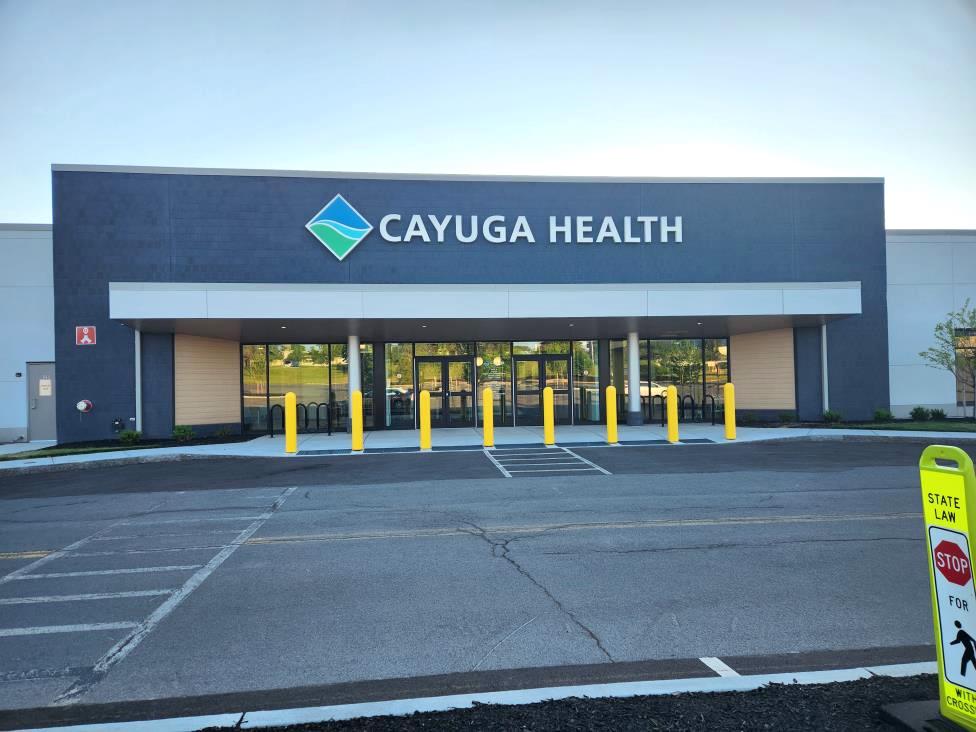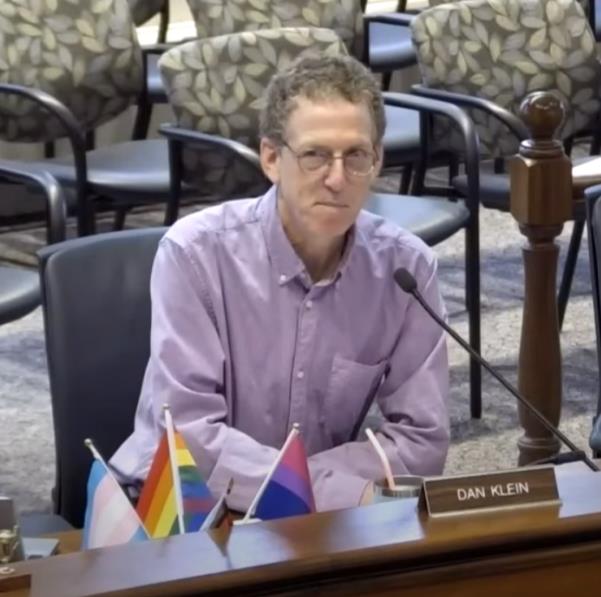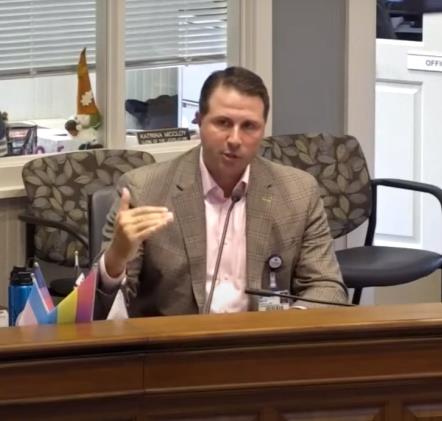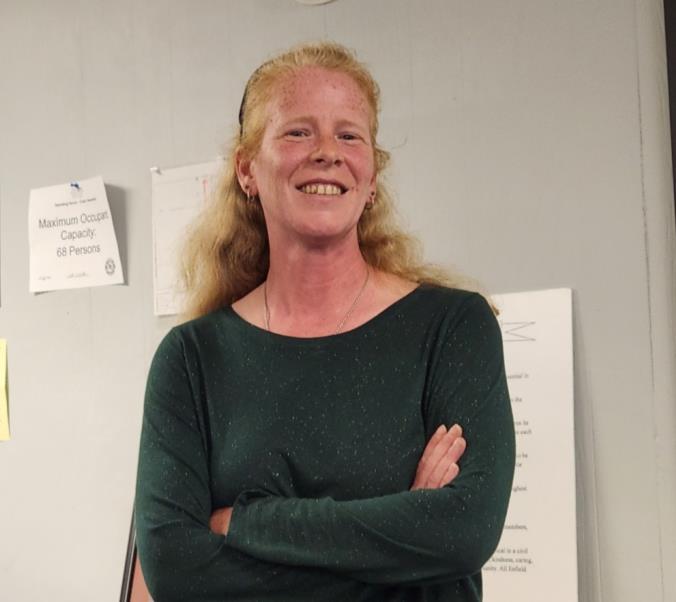Tightened deadlines and Albany’s roadblocks may redirect County cash

by Robert Lynch; June 24, 2024
Cayuga Medical Center (CMC) the largest recipient under Tompkins County’s Community Recovery Fund, faces a likely loss of $1.5 Million in grant money after a legislative committee Monday gave the hospital corporation a drop-dead deadline it will likely fail to meet.
And should CMC push past the newly-set, late-August date for securing required New York authorizations, the federally-supported funds surrendered could be gobbled up by other applicants, principally by those that lost out in prior funding rounds, including two applicants from Enfield.
“They have optimism that they can get their necessary state permission by the end of the year, but it’s far from a sure thing,” County Legislature Chair Dan Klein, who also chairs the Legislature’s Community Recovery Fund Advisory Committee, informed his committee Monday.

But year’s end is not August. And August 30th was the deadline the Advisory Committee set later in Monday’s meeting for CMC to secure the necessary approvals to allow its project to proceed.
“I think there is virtually no chance that they will get permission from the state by August 30th,” Klein acknowledged, his assessment based on a meeting he’d attended with CMC officials one week earlier. “I just think there’s virtually no chance,” Klein said.
Standing as the most ambitious—and expensive—endeavor among the more than 50 that snared Community Recovery funding through legislative action in December 2022, the CMC project, officially requested by CMC’s umbrella group, Cayuga Health Systems, would establish a “Crisis Stabilization Center” in vacant space at the Shops at Ithaca Mall.
As represented to funding officials in its application, the Stabilization Center would “provide 24/7 mental health and substance use crisis support and safe, effective, evidence-based care in a non-restrictive environment.”
But CMC has encountered problems persuading state bureaucrats to approve what it wants. In an opaque, jargon-laced presentation to a legislative committee last September, Cayuga Health CEO Martin Stallone suggested that what Albany preferred was something more akin to a “full-blown psychiatric emergency room,” as opposed to a crisis stabilization center. Stallone then made it clear to the committee that the two are not the same.
Neither Stallone, nor anyone else representing Cayuga Medical Center or its parent organization attended the Monday committee meeting.
The Recovery Fund Committee’s late-August deadline comes amid the realization that federal rules which govern Recovery Fund distribution dictate that all awards are to be “obligated”—that is, contractually finalized—by this December 31st. The funding source, Washington’s American Rescue Plan (ARPA), dictates the deadline.

Imposing a similar—though not identical—stipulation, the Recovery Fund Committee also Monday conditioned a much-smaller $74,000 grant to Khuba International, a communal farm in Danby, to the requirement that Khuba secure preliminary site plan approval from the Danby Town Planning Board by late-August, and then advance to final site plan approval by October 31st. Khuba may need a zoning variance too.
The goal behind both deadlines is to prevent Washington from clawing back from Tompkins County any unspent ARPA cash. County administrators cautioned they need time—preferably several months—to reallocate any forfeited grant awards. And the larger the forfeited amount, the more time they’d need.
Two so-far unsuccessful Enfield applicants, the Enfield Community Council (ECC) and the Enfield Volunteer Fire Company (EVFC), vigorously tendered applications in earlier funding rounds, but always fell short of receiving any Recovery money, of which $6.5 Million was allocated.
Under their most recent revisions, the Community Council sought $146,000 to replace a dilapidated modular addition to its Community Center with a “Mental Health and Community Services Wing;” and the Fire Company has proposed a minimum $50,000 for various capital improvements. The Fire Company fell just under the cut-off line in the most recent funding round.
While there’s no assurance that either the ECC or the EVFC would secure funding should CMC (and/or Khuba International) fall from the current list, that possibility remains. And should Cayuga Health forfeit its more significant amount, either Enfield agency’s hopes would brighten considerably.
Yet repurposing the CMC grant could challenge legislators, committee members, and the County’s consultant.
“If we have to reallocate $74,000 from Khuba, that’s one process,” Klein told the committee. “If we have to reallocate $1.5 Million (from CMC’s application) in two months, that’s a different process,” he warned.
“I do hope they come through with it, but I think the timeline’s tough,” Newfield-Enfield legislator Randy Brown, a committee member, said of CMC’s effort to win state support. Brown had opposed the Stabilization Center’s funding during the late-2022 awards. He said Monday he’d done so, in part, for fear of the turmoil that a circumstance like the present one might create for those frozen out of the process.
As to current CMC negotiations with Albany, “It’s a little complicated,” Dan Klein observed, his thought cut short by a power failure that prompted a five-minute suspension of the meeting.
After the break, Klein continued:
“Cayuga Health Systems may have some other plans of what they want to do with the Crisis Stabilization Center, and I’m not sure that that’s public information,” he cautioned. “I’m not sure it’s relevant, exactly,” he added.
“What we do know is that they don’t have permission from the State yet for the project that we authorized,” the Legislature’s Chair said of Cayuga Health’s approval status. “And they’re optimistic that (CMC) can get it by the end of the year, but we’re maybe a little less optimistic,” Klein conceded. “And either way, we should put in a safety rail in case they don’t get (approval) in time.”

Nevertheless, CMC’s failure to meet its time-sensitive federal deadlines may not spell the Crisis Stabilization Center’s demise. Cayuga Health pegs the Stabilization Center’s total cost at $9 Million. Funding will flow from other sources, although CMC has regarded County Government support as an essential component. At least one committee member hinted Monday that he’d be open to some other form of County subsidy later.
“This is desperately needed,” Lansing Republican Mike Sigler said of the Stabilization Center. “Whether we give it to them now or give it to them later, I think it has to get done.”
As inevitably occurs when more than four dozen applicants all feast at the same table, a few walk away. And a relatively meager amount of cash has found itself washing out of the awards process in the past few months. The fallout stands at just over $26,000 at present, much of it forfeited by the Alcohol and Drug Council when it went out of business.
The committee set up a procedure Monday to reallocate the unspent funds. It’s a process that will involve the full Legislature voting in August. In fact, the EVFC, as one of the five runners-up, will be asked if they can make the small sum work.
Meeting federal deadlines with room to spare stood out as a key concern of the Recovery Fund Advisory Committee Monday. Although ARPA rules don’t require financial books to close until December 2026, the committee directed applicants to spend their awards by April of ‘26 and voucher the bills by that August.
True, 2026 is an eternity away. And what’s more immediate in the minds of many is writing those contracts and securing key approvals—like the one CMC presently lacks—by the end of this year, or preferably sooner.
As far as the Enfield Community Council is concerned, timing should be no problem, providing, of course, that someone downtown puts ECC on the funding list.
“If we’re approved, I’ll have that modular addition leveled in 48 hours,” Cortney Bailey, President of the ECC, told this writer months ago when CMC’s problems first came to light. Said Bailey, “That’s how long it takes to order the dumpster.”
###

